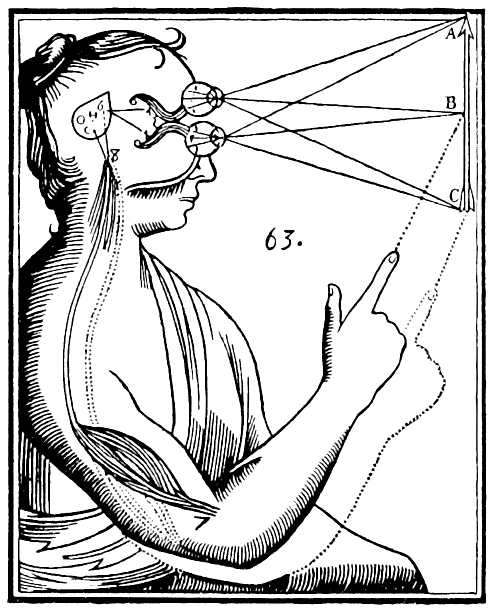Consciousness and The Limits of Bourgois Philosophy

Recently Majesty of Reason, a philosophical YouTube channel run by a Philosophy PHD student hosted a debate on the philosophy of mind between materialist philosopher David Papineau and dualist philosopher Brian Cutter. The philosophy of mind is the branch of philosophy dealing with the nature of consciousness, it concerns questions like whether souls exist, whether the mind is the same as the body, what the distinctions are between various types of mental states, ect. You might think that these are all just neuroscientific, rather than philosophical questions, but neuroscience tells us very little about the intrinsic nature of consciousness, or whether there even is such a thing. Rather, it tells us about the systematic correlations between the appearance of consciousness and its associated behaviors in human beings, machines, and other animals.
For this purpose, neuroscience is still important for a theory of the mind since those systematic correlations are very important for making scientifically informed inferences about the nature of consciousness, but those inferences will have to go beyond merely what our best neuroscientific theories have to offer. Materialism is the view that everything is ultimately explained by the subject matter of physics, including consciousness if consciousness has a substantive place in the world (one could in fact deny that consciousness has any substantive existence, and still be a materialist.) Dualism is the view that mind and matter (which in philosophy refers to the kind of thing explained by physics theories) are distinct sorts of things, one cannot be reduced to the other. On materialism there is nothing problematic about a full reduction of the mind to aspects of physical properties and processes, whereas on dualism such a reduction is in principle impossible to satisfactorily carry out. Most philosophers are materialists about consciousness with a vocal minority dissenting from materialism and entertaining various kinds of dualism, as well as other non-materialist views of mind. Most people probably don't accept materialism about consciousness given the pervasiveness of religious belief in entities such as souls; often conceived as non-physical substances which possess physical bodies and explain human consciousness.
The main motivation for materialism (or physicalism as contemporary philosophers of mind call it) stretches all the way back to the French encyclopedists of the seventeenth century; it is the progressive explanatory success of physics. From Newton, to Einstein, to Bohr the modern scientific world picture has progressively explained more and more of the phenomena that populate our world (.e.g. chemistry, biology, thermodynamics, cosmic expansion and the nature as well as behavior of heavenly bodies, and even the development of human societies) in terms of underlying and unified principles of physics. As the modern scientific world picture has developed more and more philosophers have accepted a physicalist, or materialist world outlook, with resistance from a vocal minority. The main motivation for said resistance is the seeming strangeness of entities like consciousness which aren't directly referenced in physics theories. Consciousness seems to contain features like intentionality (states of the mind represent the world around them; e.g. I believe things about the world and have desires about actual, or non-actual states of the world) and qualia (first person subjective feelings, e.g. what it's like for you to be sad, or happy). Physics doesn't directly say anything about these features of the mind, nor do any neuroscientific, or biophysical theories which deal with cognitive functioning of organisms. Further, since our concepts of such mental faculties are philosophically abstract, it seems unlikely any such theories will ever make direct reference to them.
The debate between Papineau and Cutter was largely a microcosm of the debate in the academic philosophy of mind literature. Papineau presents an argument to the effect that modern physics explains physical effects in terms of physical causes, which therefore implies that any non-physical entities couldn't play any singular causal role in explaining physical effects. However, it seems right to say that mental states such as desires, intentions, and experiences do cause me to act in the physical world and thus do have singular causal importance to effects in the physical world. Thus, to avoid an absurd theory of mind on which mental states don't have unique physical effects we need to think that the mind is (at least roughly construed) the same as biophysical processes in which causes within our bodies effect the wider physical environment. Cutter pushed back citing the very distinct intuition experienced by many philosophers and lay people that things like intentionality and qualia, given their seeming difference from the entities directly described in theories of physics, are "primitive" entities which can't be further reduced to processes and properties of the physical world. According to Cutter these intuitions give one strong reason to think that despite the fact that physicists don't at present think there are physical effects which aren't totally explained by physical causes, since the physical world is strange and there is much we will don't understand about it, that future scientific discoveries may well overturn Papineau's case for the "causal closure of the physical". This is more or less the typical trajectory of the debate in philosophy of mind since it carved itself out as its own philosophical subdiscipline.
Philosophy of mind, as well as essentially all other philosophical subdisciplines which name themselves by subject matter, rather than intellectual tradition, is a branch of "analytic philosophy". With its origins in the early 20th century analytic philosophy distinguished itself within the Anglo-American academy by intentionally restricting its philosophical method to abstract reflection on interesting concepts via the use of formal logic. This method of "conceptual analysis" was designed to deliver clear and simple answers to philosophical questions like whether God exists, whether there is a realm of abstract objects, what is knowledge and how it is attained, and of course what the nature of mind is. This is why both materialists and non-materialists in the philosophy of mind use the method of deriving conclusions about the nature of the mind from conceptually intuitive premises such as "we should read modern science as evidence for the thesis that all physical effects have physical causes" and "if experience seems different to the stuff physicists appeal to, then we should think its non-physical". However, because concepts and intuitions are socially determined people from different parts of the modern sociocultural ideological spectrum have different intuitions, and thus the debate becomes muddled and seemingly intractable. A decisive case for either party seems out of reach unless both agree that doing philosophy is just really hard and walk away feeling secured in their preexisting conclusions.
It would thus seem that without interrogating the underlying sociocultural derivers of philosophical intuition even rigorous professional thinkers will be largely unable to come to decisive consensus on matters of philosophical import. This is disturbing because even though philosophical questions seem abstract, our answers to these questions inform how we live our lives and organize our societies. For instance, the materiality of the mind bears directly on the truth of popular religious beliefs which today act as major elements of the legitimating ideological structures of modern society. If we all believed there was no soul and thus no afterlife, the social structure of the modern world would probably look very different.
Outside of analytic philosophy social theory from the 19th century on has developed methods for interrogation of the relationship between philosophical questions and conclusions and the broader sociocultural determinants of them. These methods got their start in the work of Karl Marx as one of the most important figures in the history of philosophy and social science as well as political Anarchism, the social theory directed at the immediate replacement of all forms of domination in modern society with free cooperation. These methods were carried forward in the collective development of Anarchist and Marxist political philosophy, e.g. in the tradition of Critical Theory in continental philosophy named and developed by the Marxist Frankfurt School for Social Research. The basic idea of such a method, which I will refer to as social materialism is the view that understanding the intellectual structure of any society is a matter of understanding the way in which that society facilitates social labor; social labor being the collective process of a society's material interchange with nature at any given historical time and place. So, to interrogate the basis of philosophical intuitions about the mind a social materialist analyzes how those intuitions are facilitated by and in turn facilitate the modern process of social labor.
Founding father of Anarchism Mikhail Bakunin puts the point like this:
"Yes, facts are before ideas; yes, the ideal, as Proudhon said, is but a flower, whose root lies in the material conditions of existence. Yes, the whole history of humanity, intellectual and moral, political and social, is but a reflection of its economic history.
All branches of modern science, of true and disinterested science, concur in proclaiming this grand truth, fundamental and decisive: The social world, properly speaking, the human world - in short, humanity - is nothing other than the last and supreme development - at least on our planet and as far as we know - the highest manifestation of animality. But as every development necessarily implies a negation, that of its base or point of departure, humanity is at the same time and essentially the deliberate and gradual negation of the animal element in man; and it is precisely this negation, as rational as it is natural, and rational only because natural - at once historical and logical, as inevitable as the development and realization of all the natural laws in the world - that constitutes and creates the ideal, the world of intellectual and moral convictions, ideas.
Yes, our first ancestors, our Adams and our Eves, were, if not gorillas, very near relatives of gorillas, omnivorous, intelligent and ferocious beasts, endowed in a higher degree than the animals of another species with two precious faculties - the power to think and the desire to rebel.
These faculties, combining their progressive action in history, represent the essential factor, the negative power in the positive development of human animality, and create consequently all that constitutes humanity in man."1
Marx summarizes it this way:
"The general result at which I arrived and which, once won, served as a guiding thread for my studies, can be briefly formulated as follows: in the social production of their life, men enter into definite relations that are indispensable and independent of their will, relations of production which correspond to a definite stage of development of their material productive forces. The sum total of these relations of production constitutes the economic structure of society, the real foundation, on which rises a legal and political superstructure and to which correspond definite forms of social consciousness. The mode of production of material life conditions the social, political and intellectual life process in general. It is not the consciousness of men that determines their social being, but, on the contrary, their social being that determines their consciousness. At a certain stage of their development, the material productive forces of society come in conflict with the existing relations of production, or – what is but a legal expression for the same thing – with the property relations within which they have been at work hitherto. From forms of development of the productive forces these relations turn into their fetters. Then begins an epoch of social revolution. With the change of the economic foundations the entire immense superstructure is more or less rapidly transformed. In considering such transformations a distinction should always be made between the material transformation of the economic conditions of production, which can be determined with the precision of natural science, and the legal, political, religious, esthetic or philosophic – in short, ideological forms in which men become conscious of this conflict and fight it out. Just as our opinion of an individual is not based on what he thinks of himself, so we cannot judge of such a period of transformation by its own consciousness; on the contrary, this consciousness must be explained rather from the contradictions of material life, from the existing conflict between the social productive forces and the relations of production. No social order ever perishes before all the productive forces for which there is room in it have developed; and new, higher relations of production never appear before the material conditions of their existence have matured in the womb of the old society itself. Therefore mankind always sets itself only such tasks as it can solve; since, looking at the matter more closely, it will always be found that the task itself arises only when the material conditions for its solution already exist or are at least in the process of formation. In broad outlines Asiatic, ancient, feudal, and modern bourgeois modes of production can be designated as progressive epochs in the economic formation of society. The bourgeois relations of production are the last antagonistic form of the social process of production – antagonistic not in the sense of individual antagonism, but of one arising from the social conditions of life of the individual; at the same time the productive forces developing in the womb of bourgeois society create the material conditions for the solution of that antagonism. This social formation brings, therefore, the prehistory of human society to a close."2
Social scientists have described how the modern world-system (capitalism) spurred the scientific revolution in order to serve the social function of providing standardized intellectual institutions which would allow industry to master nature. The result was the divorce of personal elements of human experience from nature which became characterized by modern science in a Newtonian fashion in the sense that modern science would treat nature as purely governed by impersonal regularities. The modern academy was subsequently divided between the sciences which would describe nature in this impersonal way and the "humanities" which would deal with the personal aspects of human experience via art, literature, and philosophy. Philosophy recorded this "disenchantment of nature" in Nietzsche's "death of God", Kierkegaard's fideist approach to Christian belief, in Horkheimer and Adorno's "dialectic of enlightenment", and 20th century existentialism's concern for defeating nihilism through human choice. The constant theme of the disenchantment of nature caused by capitalism in the modern world explains the fact that the contemporary philosophy of mind debate over materialism had a 19th century counterpart in German philosophy's "materialist controversy". The same issues of how the mind could arise from or be reduced to dead matter ripped through the German philosophical community after the death of Hegel, exhibiting familiar debates about free will and determinism as well as the place of the mind in nature.
It would seem then that philosophical intuitions about the distinction between aspects of consciousness which we experience firsthand, but aren't specified by impersonal regularities of modern science, and the natural world which by definition forms the subject matter of scientific investigation are the product of the disenchantment of nature in modern society. Of course, most people believed that there were immaterial aspects of the mind before modernity and capitalism, but they naturally did so for different reasons, being largely unbothered intellectually by developments in biophysics which have taken place after the enlightenment and scientific revolution. Thus, in the ancient world there wasn't much of a debate about the materiality of consciousness, it was more taken as data for philosophers of the age that the mind wasn't material. The intractable debate over the issue is the product of the capitalist world-system's academic two-culture split between science and the humanities.
We might ask why capitalist industry required the standardization of academic research in the two-culture split. The political philosophy of Anarchism and Marxism provide an answer that lines up well with our social materialist, or critical theoretic analysis of modern philosophical intuitions about the mind. It points out that capitalist industry reduces the world to a set of things to be bought and sold. As industry develops power structures are erected which take natural resources, human ability to work, and the product of social labor, and transform them into things which are exchanged on the market. The intellectual edifice of capitalist society thus ideologically benefits from the separation of the personal experiences and concerns of living human beings from nature and the enforcement of a system of social labor and power which treats nature as a mere set of resources to be sold for profit, rather than the extension of the personal concerns of the human beings which inhabit nature (what Marx called the "metabolic rift" between humanity and the natural world). From such an argument we can draw the political conclusion that replacement of the capitalist mode of social labor based on commodified structures of command and obedience with one based on universal free cooperation (what Anarchists and Marxists have variously called "socialism" and "communism") can allow human beings to reintegrate themselves within the natural world and come to see nature once again as an extension of their personal concerns. The academic "two-culture split" can be abolished on a materialist basis with the study of physical nature becoming the unified basis for humanity's collective understanding of itself and the world, eliminating the social basis of immaterialist philosophical dispositions.
The upshot however is that the final resolution of the debate around consciousness in favor of materialism cannot happen within the confines of conventional philosophy of mind; dominated as it is by philosophical methods of abstract reflection on the concepts baked into people's minds by the existing social order. It can only be achieved via a political philosophy that helps effect the transition from capitalist to socialist society. Further, as long as humanity is alienated from nature by structures of domination, commodified, or otherwise people will continue to entertain the illusion that they are more than social animals and that their very personal mental activities exist in a free-floating realm above nature whose only intellectual backing is the intuition of the oppressed human being.
Notes
1. God and The State, Bakunin
2. Quoted in Marx's Concept of Man, Fromm
Sources
Philosophy of Mind: The Basics, Kind
Philosophy of Mind: A Very Short Introduction, Montero
https://plato.stanford.edu/entries/critical-theory/
Continental Philosophy: A Very Short Introduction, Critchley
https://plato.stanford.edu/entries/existentialism/
World-Systems Analysis: An Introduction, Wallerstein
https://academic.oup.com/edited-volume/34471/chapter-abstract/292473030?redirectedFrom=fulltext
Continental Philosophy of Religion, Burns
Anarchism, Honeywell





